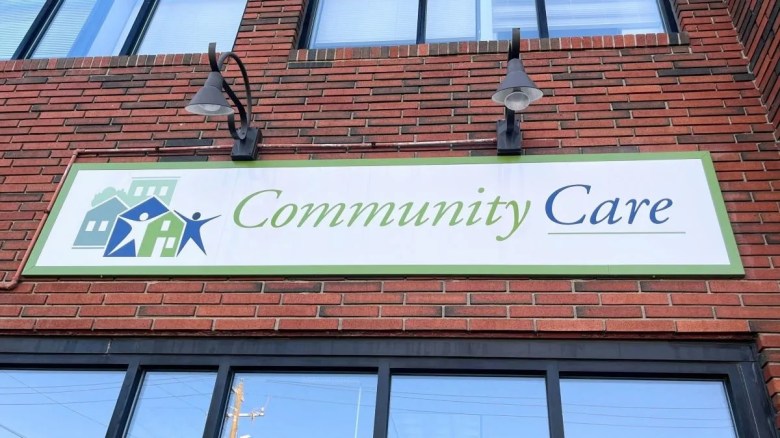Lifestyle
Maine’s Child Visitation Provider Fails to Meet Contract Standards

Maine’s largest contracted provider of visitation services, Community Care, has struggled to meet its obligations under a contract with the Maine Department of Health and Human Services (DHHS). In 2024, the organization scheduled only 10% of required visits between parents and children within the mandated seven-day period following child removal due to abuse or neglect. This failure raises serious concerns about the state’s ability to facilitate timely reunification for families in crisis.
Under state law, parents are entitled to supervised visits with their children within a week of state intervention. These visits are crucial for maintaining family bonds and supporting reunification efforts. Unfortunately, an analysis by The Maine Monitor revealed that Community Care scheduled just 30 out of 286 referrals within the required timeframe last year, falling significantly short of the 90% benchmark outlined in its contract.
Despite its poor performance, DHHS renewed Community Care’s contract in December 2023, increasing the agency’s billing rate to a maximum of $292,791 per month, which equates to approximately $3.5 million annually. This renewal came even as the organization failed to deliver essential services, with parents and children often waiting weeks or even months for scheduled visits.
Concerns Over Performance and Accountability
The median wait time for a visit last year was 29 days, according to the performance data submitted by Community Care. Though the organization has a substantial presence in five of Maine’s eight DHHS districts, including Cumberland County, the data indicates a significant shortfall in meeting the state’s visitation requirements. For example, in District 2, only 2 of the 55 referrals were scheduled within the designated seven-day period, achieving a mere 3.6% compliance rate.
Alisa Morton, spokesperson for DHHS, acknowledged the concerning performance of current providers. She stated, “That current providers are not providing expected services is of serious concern to the Department.” However, Morton did not clarify what steps, if any, the department is taking to address Community Care’s shortcomings or to recover taxpayer funds for unfulfilled services.
Experts and child welfare advocates have expressed alarm over the implications of these delays. The inability to facilitate timely visits not only impacts the emotional well-being of children and parents but also complicates case resolution and prolongs the overall process of reunification. This burden further strains DHHS caseworkers, who are often required to intervene and schedule visits when contracted providers fail to do so.
Comparative Performance of Other Providers
In stark contrast to Community Care, other state-contracted supervised visitation providers have demonstrated more success in meeting the seven-day scheduling requirement. For instance, the Aroostook Mental Health Center (AMHC), which operates in several rural counties, scheduled visits within the required timeframe 48% of the time, while Penquis Community Action Agency exceeded the benchmark by scheduling 93% of its visits within seven days.
The performance discrepancies suggest that various operational challenges, such as staffing issues or logistical complexities, could be addressed. In light of these challenges, some providers, such as Fair Shake, a for-profit company, have thrived by offering a more flexible model. Fair Shake reported a 95% success rate in scheduling visits within the mandated timeframe from April to December 2024.
As Maine’s DHHS works to finalize temporary amendments to extend current contracts, it plans to issue a request for proposals for visitation services in all districts by early 2026. This move may pave the way for more effective solutions to address the ongoing challenges in the state’s child welfare system.
The situation raises critical questions about accountability and the effectiveness of state oversight. Child welfare attorneys and advocates are urging greater scrutiny of providers like Community Care to ensure that families receive the timely support they need. As one attorney remarked, “Who is holding Community Care accountable?” The pressing need for reform in Maine’s child welfare visitation services remains clear, as the welfare of children and families hangs in the balance.
-

 Science2 months ago
Science2 months agoUniversity of Hawaiʻi at Mānoa Joins $25.6M AI Initiative for Disaster Monitoring
-

 Health2 months ago
Health2 months agoNew Gel Offers Hope for Regrowing Tooth Enamel in Dentistry
-

 Science1 month ago
Science1 month agoALMA Discovers Companion Orbiting Red Giant Star π 1 Gruis
-

 Lifestyle1 month ago
Lifestyle1 month agoPark Jung Min’s Endearing Moment with Hwasa Steals Show at Awards
-

 Science2 months ago
Science2 months agoIROS 2025 to Showcase Cutting-Edge Robotics Innovations in China
-

 Lifestyle2 months ago
Lifestyle2 months agoStone Island’s Logo Worn by Extremists Sparks Brand Dilemma
-

 Lifestyle2 months ago
Lifestyle2 months agoSampson County Celebrates Susie Faison’s 100th Birthday Milestone
-

 Lifestyle2 months ago
Lifestyle2 months agoMary Morgan Jackson Crowned Little Miss National Peanut Festival 2025
-

 Health2 months ago
Health2 months agoStartup Liberate Bio Secures $31 Million for Next-Gen Therapies
-

 Health2 months ago
Health2 months agoTop Hyaluronic Acid Serums for Radiant Skin in 2025
-

 Science2 months ago
Science2 months agoArizona State University Transforms Programming Education Approach
-

 Politics2 months ago
Politics2 months agoJudge Considers Dismissal of Chelsea Housing Case Citing AI Flaws








